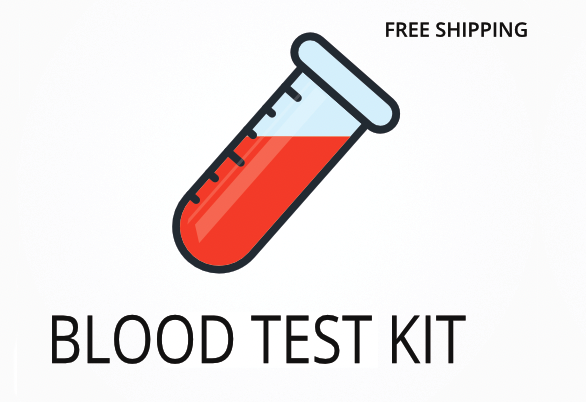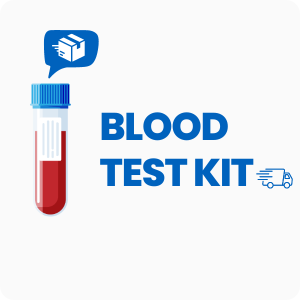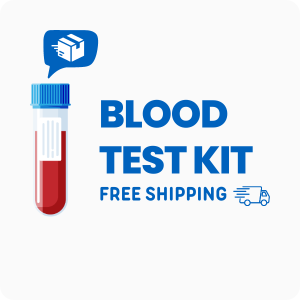Ordering the MRT 135 Food Sensitivity Test
The MRT 135 Food Sensitivity Test from Oxford Biomedical helps identify immune reactions to 122 foods and 8 food chemicals, plus 5 new markers, by measuring changes in white blood cells. This test is often used by people experiencing symptoms like bloating, migraines, skin rashes, or digestive discomfort that may be linked to food sensitivities. Interestingly, you do not need to eat the foods before the test, making it suitable for those who have already eliminated certain foods or have immune system concerns.
Ordering this test provides:
- Detection of both common and less common food and chemical sensitivities
- Personalized results with a wallet-size card for easy reference while shopping
- No need to reintroduce foods before testing, reducing risk of symptom flare-ups
- Results that can guide targeted dietary changes for symptom relief
- Quick turnaround time, with results in 5-7 business days
Who Should Consider Food Sensitivity and Immune Response Testing
People who have tried multiple diets but still struggle with symptoms like headaches, fatigue, or skin issues may benefit from this test. For example, someone who has ongoing digestive problems despite avoiding common trigger foods could use this test to uncover hidden sensitivities and make more informed food choices.
Ordering may also be helpful in these situations:
- Recurring migraines that do not respond to standard treatments
- Unexplained skin rashes or hives that come and go
- Persistent joint pain without a clear cause
- Children with chronic stomach cramps or irregular bowel movements
- People who notice mood swings or brain fog after eating, which is less commonly linked to food sensitivities but can be significant
Pinpointing specific food and chemical triggers can help reduce symptoms like bloating, headaches, or skin reactions by guiding dietary changes based on your immune system’s response. Delaying this test may mean continued discomfort and missed opportunities to address symptoms with targeted nutrition changes.
How to Prepare for Food Reactivity and Chemical Additive Screening
Fasting is not required for the MRT 135 Food Sensitivity Test, but follow the instructions in your test kit for best results. Always go by any directions your doctor or healthcare provider gives you to make sure your sample is collected and shipped correctly.
Labs Included When Ordering Your MRT 135 Food Sensitivity Test
| Test Name | Reference Range | Significance | Low and High Levels of MRT 135 Food Sensitivity Test |
|---|---|---|---|
| Foods Panel (122 Foods) | |||
| Almond, Amaranth, Apple, Apricot, Asparagus, Avocado, Banana, Barley, Basil, Beef, Beet, Black pepper, Blueberry, Broccoli, Buckwheat, Butternut squash, Cabbage, Cane sugar, Cantaloupe, Carob, Carrot, Cashew, Cauliflower, Cayenne pepper, Celery, Cheddar cheese, Cherry, Chicken, Cinnamon, Clam, Cocoa, Coconut, Codfish, Coffee, Corn, Cottage cheese, Cow’s milk, Crab, Cranberry, Cucumber, Cumin, Date, Dill, Egg white, Egg yolk, Eggplant, Garbanzo bean, Garlic, Ginger, Goat’s milk, Grape, Grapefruit, Green bean, Green pea, Green pepper, Halibut, Hazelnut, Honey, Honeydew, Kale, Kamut, Lamb, Leek, Lemon, Lentil, Lettuce, Lima bean, Mango, Maple syrup, Millet, Mint, Mung Bean, Mushroom, Mustard (seed), Oat, Olive, Onion, Orange, Oregano, Papaya, Paprika, Parsley, Peach, Peanut, Pear, Pecan, Pineapple, Pinto Bean, Pistachio, Plum, Pork, Quinoa, Rainbow trout, Raspberry, Rice, Rye, Salmon, Sesame seed, Shrimp, Sole, Soybean, Spelt, Spinach, Strawberry, Sunflower seed, Sweet potato, Tea, Tilapia, Tomato, Turmeric, Tuna, Turkey, Vanilla, Venison, Walnut, Watermelon, Wheat, White potato, Yeast-bakers/brewers, Yogurt, Whey, Zucchini | Non-reactive: 0-1 Reactive: 2 or higher |
These foods are tested for immune cell reactions that may cause symptoms like bloating, headaches, or skin issues. A higher score means a stronger immune response to that food. |
High levels mean your immune system reacts to this food, which may trigger symptoms like digestive upset, headaches, or skin problems.
Low levels are not clinically significant for this test. |
| Chemicals/Additives Panel (8 Chemicals) | |||
| Caffeine, Fructose (HFCS), Lecithin (soy), Phenylethylamine, Potassium nitrate, Salicylic acid, Solanine, Tyramine | Non-reactive: 0-1 Reactive: 2 or higher |
These chemicals and additives are tested for immune cell reactions that may cause symptoms such as headaches, fatigue, or digestive issues. A higher score means a stronger immune response to that chemical. |
High levels mean your immune system reacts to this chemical, which may trigger symptoms like headaches, fatigue, or digestive upset.
Low levels are not clinically significant for this test. |
| New Test Markers (5) | |||
| Bok choy, Acetaminophen, Aspartame, Ibuprofen, Sorbic acid | Non-reactive: 0-1 Reactive: 2 or higher |
These new markers include foods and common medications or additives, helping to identify less obvious triggers for symptoms like headaches, rashes, or digestive discomfort. |
High levels mean your immune system reacts to this marker, which may cause symptoms such as headaches, rashes, or digestive issues.
Low levels are not clinically significant for this test. |
Reference ranges may change slightly as the laboratory updates its testing methods and data.
MRT 135 Food Sensitivity Test FAQ
Is there MRT 135 Food Sensitivity Test testing near me?
This test is a kit that can be collected at a local draw site—check the draw location link at the top of the page. For those dealing with ongoing symptoms like digestive issues or skin reactions, having a nearby collection site makes it easier to get tested quickly and return your sample the same day.
How do I interpret the test results?
While your treating physician should review your results, we also offer a one-on-one test results review with our clinical team to help you understand your results and next steps.
What is the cost of the test?
The price listed for the MRT 135 Food Sensitivity Test includes standard shipping to you and return shipping to the lab, though local draw fees may apply. Ordering this test can help you identify specific food or chemical triggers, which may speed up relief from symptoms like bloating or headaches.
How often should I retest?
Retesting is usually recommended every 6-12 months, especially if you have made significant dietary changes or if symptoms return. Reordering helps track changes in your immune response and ensures your food plan stays up to date.
How accurate is the test?
The MRT 135 Food Sensitivity Test uses a patented method that measures white blood cell size changes when exposed to foods and chemicals, with a specificity of 94.5% and sensitivity of 91.7%. TrueHealthLabs.com partners with CLIA-certified and CAP-certified laboratories to uphold rigorous testing standards for dependable results.
Important Notes
- This MRT test is available in the USA (excluding NY State) and Canada only.
- Samples must be returned to the lab the same day. We suggest getting the draw early in the morning and shipping immediately. Canadian customers must arrange return shipping. Return shipping for USA customers is free.
- Return shipping: Monday-Thursday
- No minimum age requirement to run the test. If the patient weighs less than 16 lbs, submit at least 2 full tubes to the lab.
Medical Review Board
Reviewed by Jeff Donohue M.D. from Body Logic and Brady Hurst DC, CCCN. Written by True Health Lab’s team of editorial health contributors.
Disclaimer: This information is for educational purposes only and not intended as medical advice. Consult your healthcare provider for personalized guidance.
Why Customers Trust True Health Labs - What People are saying
Also rated 4.6 out of 5 based on 3452 ShopperApproved reviews- See all TrueHealthLabs.com reviews.








